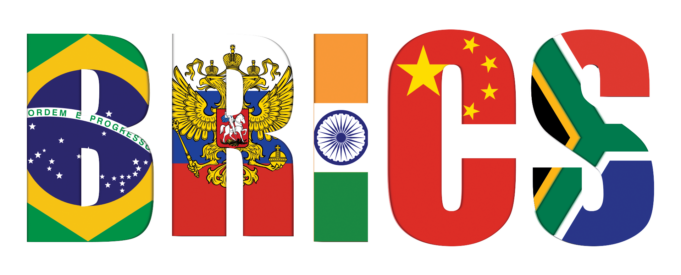The 15th BRICS Summit was held in Johannesburg, South Africa, August 22, to 24. BRICS is currently comprised of the countries of Brazil, Russia, India, China and South Africa. This year’s summit was hosted by South African president Cyril Ramaphosa and over 60 global leaders and political heavyweights were invited.
Not only was this the largest in scale summit since the establishment of BRICS as “a cooperation mechanism,” but this was also the largest gathering of its kind in the “Global South” in recent history. The summit, themed: “BRICS and Africa: Partnership for Mutually Accelerated Growth, Sustainable Development and Inclusive Multilateralism,”

Reflects the increasing expectations being placed on BRICS determination to provide the Global South with a greater say in helping develop the evolving global financial infrastructure. Directly following the summit, Chinese President Xi Jinping will co-chair, along with President Ramaphosa the China-Africa Leaders’ Dialogue.
Contrary to Western corporate press framing BRICS as “an anti-imperialist platform,” Vijay Prashad, director of the Tricontinental Institute for Social Research, said on Democracy Now prior to the summit that, this “is a straw-man argument.”
“I mean, these are very large countries in the world. You put together their gross domestic product, the global share of the GDP of the BRICS countries is greater than the global share of the GDP of the G7 (countries). These are operators, large countries. These are not—you know—this is not a socialist bloc or an anti-imperialist bloc standing against the West. Quite the contrary, this is a group of large Southern countries that are basically saying that no longer do they believe that the West’s interest is equivalent to their interests,” said Prashad.
“They are putting forward their national, to some extent, their regional interests. … They don’t want to sit and do whatever the West tells them—they’re driving their own agenda. I think it’s a little absurd to judge them based on a socialistic standard. This is not a socialist bloc.” Prashad added, “This isn’t claiming to be an anti-imperialist bloc. On the other side, it is perhaps indicating a kind of new nonalignment.”
The August 17 edition of the Nation Magazine characterized BRICS’ growing popularity by Global South countries as a growing hunger for countering the serious shortcomings of the global financial order led by the United States.
In addition, the magazine pointed out that the multiple failures of the current world order that principally benefits Western nations has energized the Global South countries to demand two core requirements: economic development and safeguarding sovereignty. Through BRICS, the Global South, through a unified front, is seeking the creation of a new financial infrastructure for ordering the world.
According to China’s English-language newspaper Global Times, “the West has a confrontational perspective (of BRICS) and considers it as a threat to Western hegemony is becoming increasingly popular in Western societies.” This negative BRICS perspective, as an Indian diplomat recently bluntly pointed out, “emanates out of a morbid fear of extinction.”
Adding to the negative press, the New York Times described summit participants as “from different nations, with different interests, making common ground difficult to find.”
In addition, the denial of President Emmanuel Macron of France to attend the event brought an another layer of complexity to the already negative media coverage. “The summit has notably excluded both French President Macron and the Moroccan delegation due to concerns over their respective roles in the geopolitical landscape.
This decision underscores the growing unease with actions that could destabilize regions and compromise diplomatic efforts,” reported Algeria’s Dzair Tube. Morocco’s role includes allowing France access to its air space to attack Niger. The hydrocarbon-rich Algeria, who applied to join BRICS and contributed $1.5 billion to the BRICS National Development Bank (NDB), denied France access to its airspace.
South African attorney Cawe Mahlati, via a text to Africa Watch, noted that new proposed BRICS members represent $30.5 trillion, 30 percent of the global economy. POLITICO reported the invited new BRICS members include Argentina, Ethiopia, Iran, Saudi Arabia and the United Arab Emirates, said President Ramaphosa.
Prashad framed the BRICS Summit and subsequent meetings as places where a great deal of debate occurs. “This is not a place where people just come and nod and agree. It’s a place of great debate. Dilma Rousseff (head of NDB and former President of Brazil) has said repeatedly she is going to Johannesburg to discuss and debate the importance of local currencies, pushing the idea that people need to trade in their own currencies.
They shouldn’t be mediated merely through the dollar. I think these are rich and important discussions. I’m actually just surprised how little these discussions carry over into the West.” Follow @JehronMuhammad on X, formerly known as Twitter













